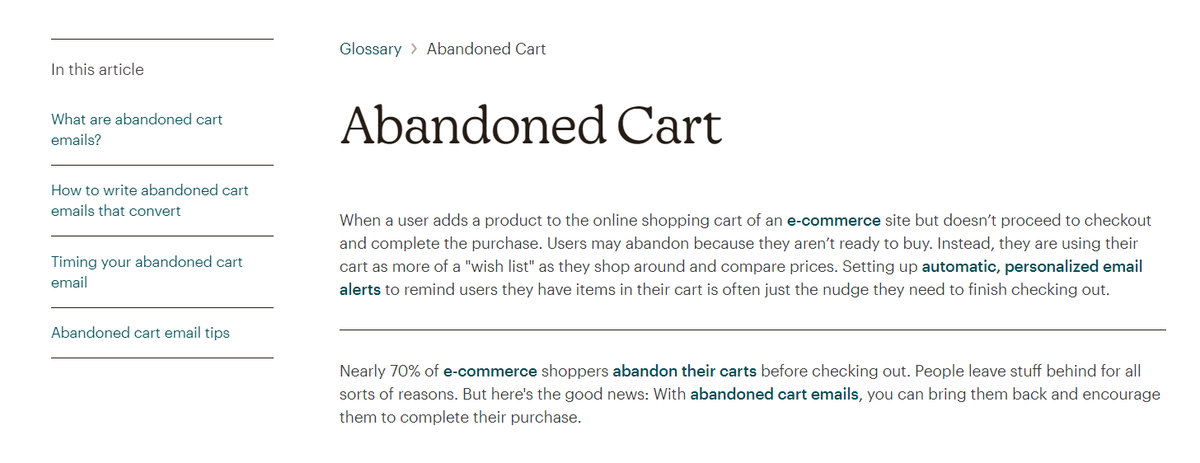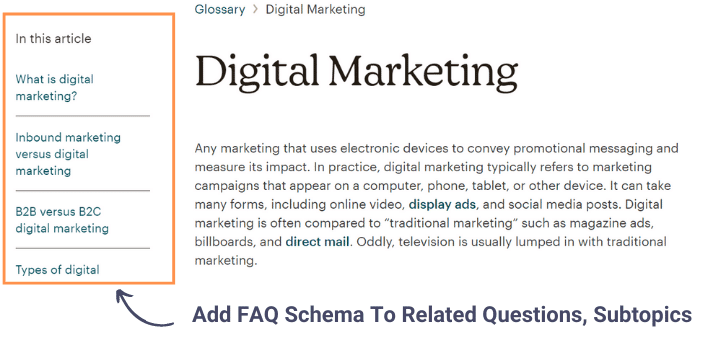How Mailchimp is driving 46K+ organic visits per month with this strategy

The ‘marketing glossary pages’ of MailChimp is ranking for hundreds of keywords like these:
-
What is ROI
-
What is a landing page
-
What is a bounce rate, & a lot more.
As a result, these pages are driving 46.3k organic visits per month and have acquired links from 1.74k domains.

Here’s a step-by-step process to steal Mailchimp’s strategy:
Step 1/ Find the broad topic for creating glossary pages
Make it relevant to the business offerings. For example, if your business is in the HR services, the glossary page could be relevant to the HR glossary.
Step 2/ Identify and list sub-topics
Now, it’s time to find all possible relevant sub-topics relevant to your primary idea.
Possible sources to get ideas from are:
-
Customer interviews
-
Google autosuggestions
-
TOC of books
-
Quora, Reddit, and other forums.
Step 3/ Refine the list of definitions
Surely, you don’t necessarily need to write thousands of definitions, even related to the primary topic.
Prioritize the keyword list by→
- Search volume
- Business value
- Search intent
Now, you have a list of glossary terms to be considered.
Step 4/ Make it short & straightforward
Make the title as simple as ‘[keyword] definition,’ or something like ‘what is [keyword].’ Add the definition in one paragraph.
Sometimes it helps you win featured snippets as well. Next, add relevant questions to the glossary keyword.

Step 5/ Add FAQ schema
Adding FAQ schema for the related questions will help you stand out in the SERP.
Here’s how Mailchimp is doing the same:

Step 6/ Categorize and interlinks
Internal linking is a must to get the most out of this strategy. Add internal links to relevant blog articles, pillar pages, service pages. Even better, run editorial link campaigns to get the initial boost to the glossary pages.
Liked this?
Perhaps, you'll also love my weekly content marketing newsletter.
Every Monday, I send:
-
Actionable marketing lessons
-
Upcoming events reminder
-
Expert insights on content marketing
👉Join the newsletter from here: https://www.indiehackers.com/series/content-marketing-vip
Thank you🙂

is the FAQ schema a good strategy to include for blogs that follows question and answer style? I have couple of glossary pages here: https://blocksurvey.io/glossary
Can you guide?
Yes, for a quick questions answer style, FAQ is always a good practice. Best part is you can drive traffic to other webpages by linking from the answers itself.